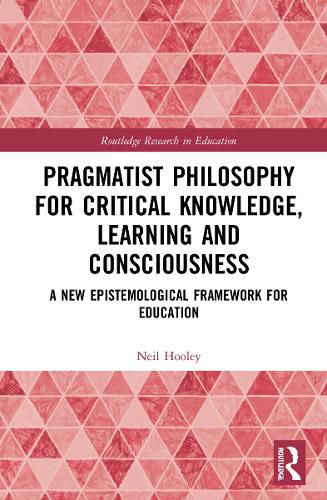Readings Newsletter
Become a Readings Member to make your shopping experience even easier.
Sign in or sign up for free!
You’re not far away from qualifying for FREE standard shipping within Australia
You’ve qualified for FREE standard shipping within Australia
The cart is loading…






Emerging from the confusion and chaos of neoliberal economic systems around the world, this book brings together a collection of major philosophical ideas from previous centuries and applies them to the practice of education.
The book argues that pragmatist philosophy is the most appropriate to guide the organisation of curriculum, pedagogy and assessment. It outlines a number of philosophical dilemmas, exploring these in relation to particular philosophers and offers philosophical insights for educational practice. Further, the book proposes Critical Praxis Bricolage, an epistemological framework articulating a view that education practices are embedded in a social context. This reshapes formal education from being dominated by the market forces of neoliberalism, into a way of ethical life that respects the dignity and knowledgeability of each person and community regardless of background.
Written in a narrative style, Pragmatist Philosophy for Critical Knowledge, Learning and Consciousness provides a philosophical paradigm of experience, culture and inquiry that actively connects with human interests of the everyday and with the distinctiveness of being human. This work will be of interest to researchers and higher degree students of education and philosophy of education.
$9.00 standard shipping within Australia
FREE standard shipping within Australia for orders over $100.00
Express & International shipping calculated at checkout
Emerging from the confusion and chaos of neoliberal economic systems around the world, this book brings together a collection of major philosophical ideas from previous centuries and applies them to the practice of education.
The book argues that pragmatist philosophy is the most appropriate to guide the organisation of curriculum, pedagogy and assessment. It outlines a number of philosophical dilemmas, exploring these in relation to particular philosophers and offers philosophical insights for educational practice. Further, the book proposes Critical Praxis Bricolage, an epistemological framework articulating a view that education practices are embedded in a social context. This reshapes formal education from being dominated by the market forces of neoliberalism, into a way of ethical life that respects the dignity and knowledgeability of each person and community regardless of background.
Written in a narrative style, Pragmatist Philosophy for Critical Knowledge, Learning and Consciousness provides a philosophical paradigm of experience, culture and inquiry that actively connects with human interests of the everyday and with the distinctiveness of being human. This work will be of interest to researchers and higher degree students of education and philosophy of education.